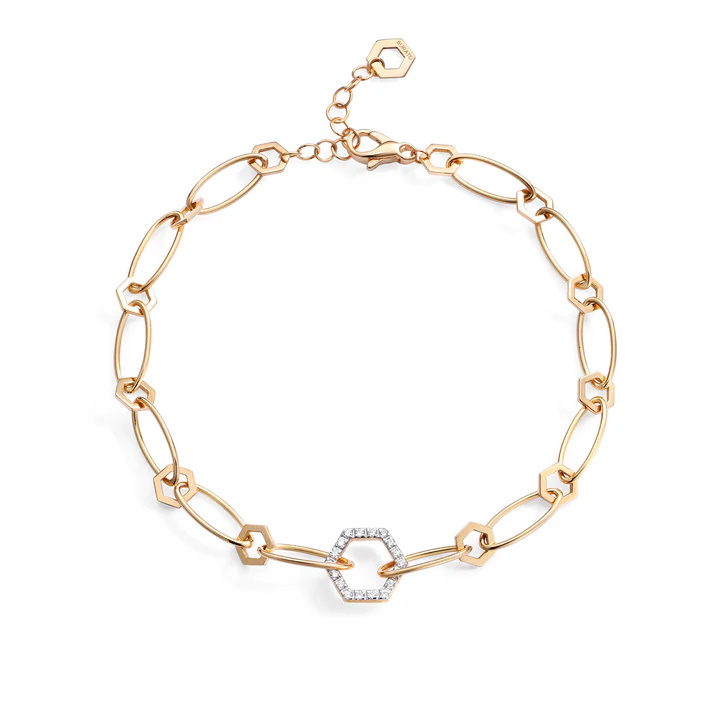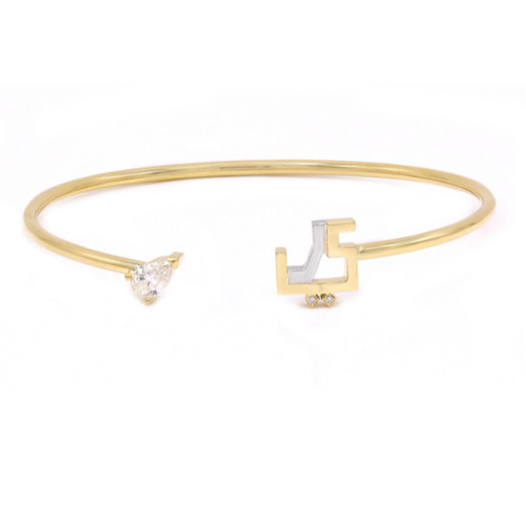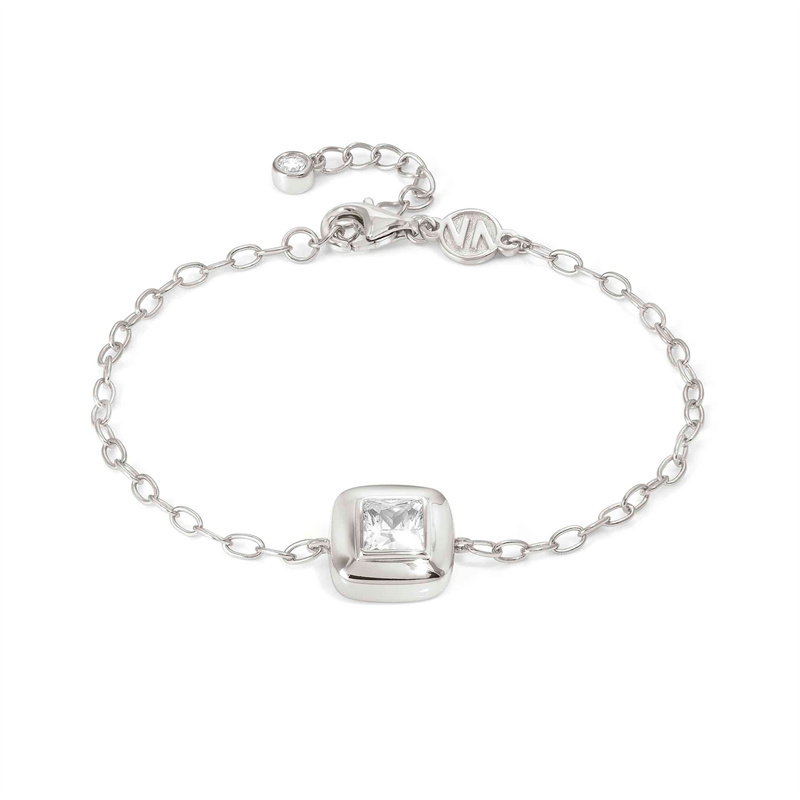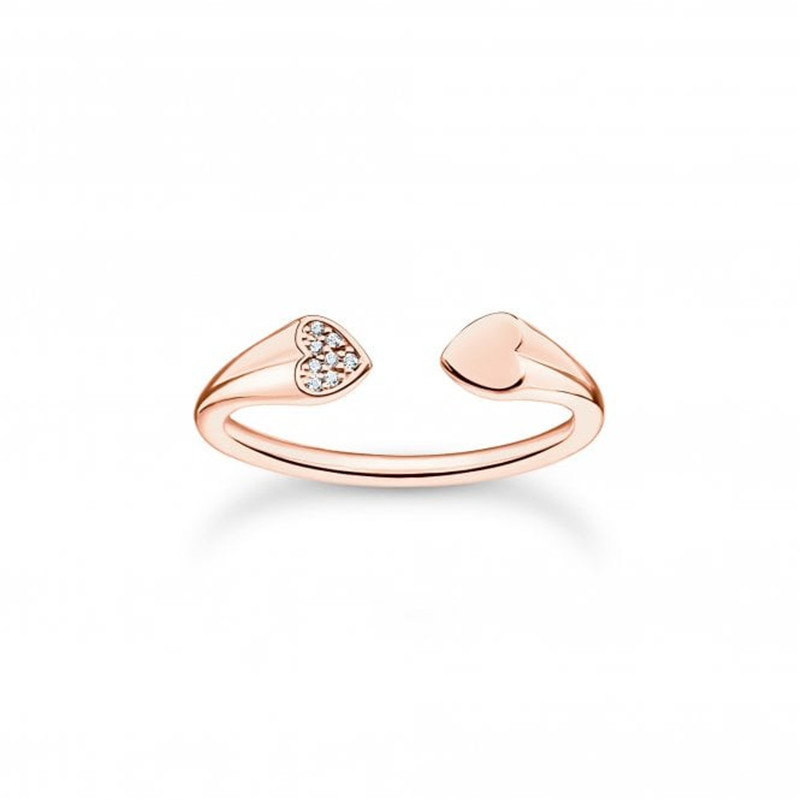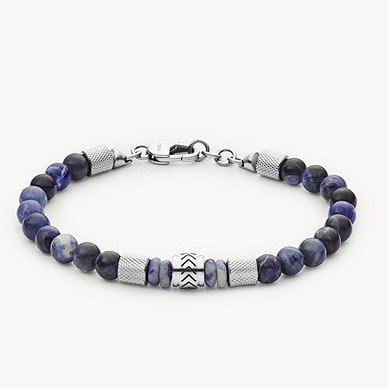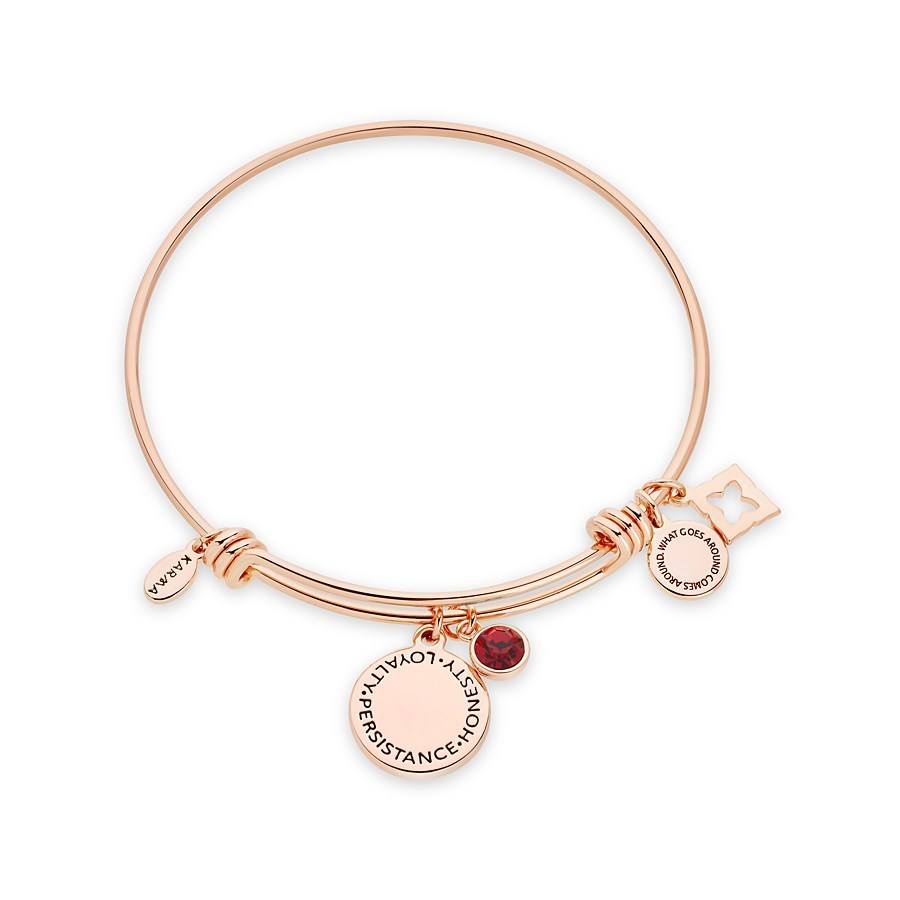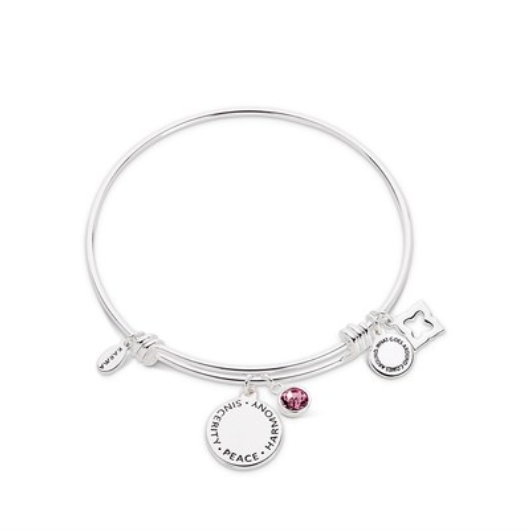The 18 KT Gold Chain Bracelet with CZ Manufacturing Process: From Concept to Finished Product
Makes custom jewelry supplier
LET’S GET STARTED : mo@kingjy.com
The 18 KT Gold Chain Bracelet with CZ Manufacturing Process: From Concept to Finished Product
Introduction
The creation of an 18 KT gold chain bracelet with cubic zirconia (CZ) stones is a meticulous process that combines artistry, engineering, and precision craftsmanship. From initial design concepts to the final polished product, each step involves careful attention to detail to ensure durability, aesthetic appeal, and marketability.
This article explores the complete manufacturing process of an 18 KT gold chain bracelet with CZ stones, covering:
- Design and Conceptualization
- Material Selection
- Wax Model and Prototyping
- Casting the Gold Bracelet
- Stone Setting (Cubic Zirconia)
- Polishing and Finishing
- Quality Control and Certification
- Packaging and Market Delivery
By understanding this process, consumers and industry professionals alike can appreciate the skill and effort behind each piece of fine jewelry.
1. Design and Conceptualization
Step 1: Market Research & Trend Analysis
Before any physical work begins, jewelers and designers analyze current fashion trends, consumer preferences, and historical sales data to determine the best styles for the bracelet. Factors considered include:
- Bracelet type (e.g., Figaro, Cuban, Rope, Singapore chain)
- CZ stone arrangement (e.g., single row, halo, pavé)
- Target audience (luxury buyers, fashion-conscious consumers, gift market)
Step 2: Sketching & CAD Design
Once a concept is chosen, designers create hand-drawn sketches or use Computer-Aided Design (CAD) software to develop a 3D model. CAD allows for precise adjustments in:
- Chain link size and shape
- CZ stone placement
- Clasp mechanism
Step 3: Client/Management Approval
The final design is presented to stakeholders (brand managers, clients, or production teams) for approval before moving to prototyping.
2. Material Selection
Step 1: Choosing the Gold Alloy
18 KT gold is composed of 75% pure gold mixed with 25% alloy metals (such as copper, silver, or zinc) to enhance durability. The alloy composition affects:
- Color (yellow, white, or rose gold)
- Hardness (resistance to scratches)
- Tarnish resistance
Step 2: Selecting Cubic Zirconia (CZ) Stones
CZ stones are a popular diamond alternative due to their brilliance, affordability, and durability. Key considerations include:
- Stone size (1mm to 5mm, depending on design)
- Cut (round brilliant, princess, cushion)
- Color grade (D-F for colorless stones)
Step 3: Additional Materials
- Clasp mechanism (lobster clasp, spring ring, or box clasp)
- Soldering materials (gold solder for seamless joins)
3. Wax Model and Prototyping
Step 1: Wax Carving or 3D Printing
- Traditional method: A wax model is hand-carved to match the design.
- Modern method: 3D printing creates a resin prototype from CAD files.
Step 2: Creating the Mold
The wax model is placed in a plaster-like investment material to form a mold for casting.
4. Casting the Gold Bracelet
Step 1: Lost-Wax Casting Process
- The wax model is melted away, leaving a hollow mold.
- Molten 18 KT gold is poured into the mold.
- After cooling, the plaster mold is broken away, revealing the raw gold bracelet.
Step 2: Cleaning & Deburring
The rough cast is cleaned using:
- Ultrasonic baths (to remove residue)
- Hand filing (to smooth edges)
5. Stone Setting (Cubic Zirconia)
Step 1: Preparing the Setting
- Prong setting: Small metal claws hold each CZ stone.
- Channel setting: Stones are secured between two gold walls.
- Pavé setting: Tiny stones are set closely together for maximum sparkle.
Step 2: Precision Placement
A jeweler’s loupe and micro-tools are used to:
- Drill holes for each stone
- Secure stones with adhesive (temporary) before final setting
Step 3: Final Stone Setting
- Prongs are bent over the stones.
- Excess metal is filed away for a smooth finish.
6. Polishing and Finishing
Step 1: Initial Polishing
- Rotary tools with polishing wheels smooth the surface.
- Diamond paste enhances shine.
Step 2: Rhodium Plating (Optional for White Gold)
- A thin layer of rhodium is electroplated for extra brightness.
Step 3: Final Inspection
- Microscopic checks for scratches or loose stones.
- Ultrasonic cleaning to remove polishing residues.
7. Quality Control and Certification
Step 1: Purity Verification
- X-ray fluorescence (XRF) testing confirms 18 KT gold purity.
Step 2: Durability Testing
- Tension tests ensure the chain won’t break under stress.
- Stone security checks prevent future losses.
Step 3: Hallmarking & Certification
- Laser engraving of brand logo, metal purity (750 for 18 KT), and serial number.
- Gemological certification (if required) for CZ quality.
8. Packaging and Market Delivery
Step 1: Luxury Packaging
- Velvet boxes, authenticity cards, and care instructions enhance unboxing experience.
Step 2: Distribution
- Boutique stores, online retailers, or private clients receive the finished product.
Conclusion
The journey of an 18 KT gold chain bracelet with CZ stones from concept to finished product is a blend of art, science, and craftsmanship. Each stage—from CAD design to final polishing—requires expertise to ensure beauty, durability, and value.
Understanding this process helps consumers appreciate the skill behind fine jewelry and guides industry professionals in maintaining high production standards. Whether as a fashion statement or an investment piece, an 18 KT gold CZ bracelet represents luxury, precision, and timeless elegance.
